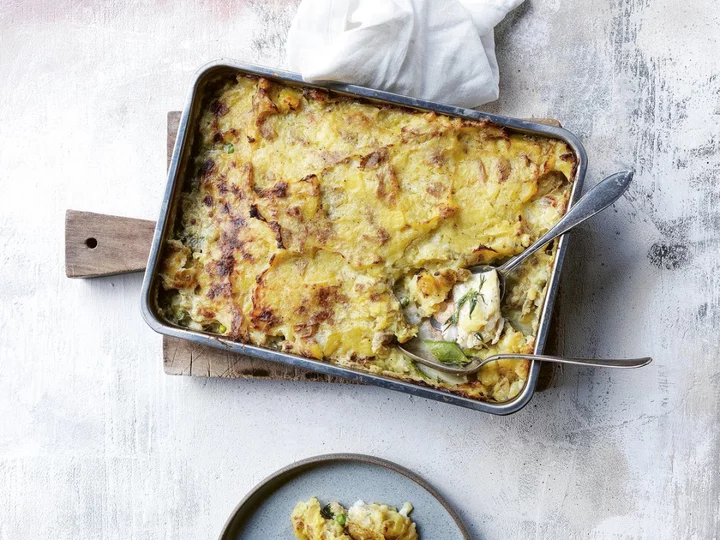
Lighter fish pie: Comfort food you won’t feel guilty for eating
The ultimate comfort food, but also light; this recipe manages to be creamy and filling without you having to take a nap afterwards, which can be the case with heavier meat dishes,” says Trine Hahnemann, author of Simply Scandinavian. “It can be made with any fish, or also with the same weight of vegetables instead. This kind of pie will always do it for me when I’m in need of energy and comfort.” Fish pie Serves: 6 Ingredients: 800g large potatoes, chopped into big chunks 100g salted butter, plus 3 tbsp, plus more for the dish 500g firm white fish fillet, chopped into small pieces 300g raw prawns, sustainably caught 10 white asparagus spears 10 green asparagus spears 2 shallots, finely chopped 200g shelled fresh peas 5 dill sprigs, chopped Sea salt flakes and freshly ground black pepper Leaves from 2-3 sprigs of flat-leaf parsley, chopped, to serve (optional) Method: 1. Boil the potatoes in water until tender. 2. Butter a large ovenproof dish generously, then add the chopped fish and prawns in an even layer. Season with salt. 3. Snap the lower one-third of the white and green asparagus off, then peel the white asparagus until shiny and cut all the asparagus spears into four-centimetre pieces. (The trimmings and peelings can be used in soup). Fry the shallots gently in a frying pan in one tablespoon of butter. Turn off the heat, add the asparagus, peas and dill, mix well and season with salt and pepper. Arrange the vegetable mixture on top of the fish. 4. Preheat the oven to 200C/400F/gas mark 6. When the potatoes are cooked, drain them, reserving 100 millilitres of their cooking water. Mash the potatoes lightly together with the reserved cooking water and the 100 grams of butter, keeping the mash chunky. Season to taste with salt and pepper, then spread the mash over the pie filling and place the remaining two tablespoons of butter, in small dots, on top. 5. Bake for 30 minutes. Let it rest for a few minutes, then scatter with parsley and serve. ‘Simply Scandinavian’ by Trine Hahnemann (Quadrille, £27). Read More Budget Bites: Three light recipes that sing of summer What the hell is Scandinavian food? Three quick and easy plant-based fakeaways to create at home The Union Rye, review: Finally, a decent restaurant in this charming East Sussex town Missing Glastonbury? Here’s how to have a festival feast at home Four berry sweet recipes that go beyond strawberries and cream
2023-06-29 17:25

US guitar maker Fender opens flagship store in Tokyo banking on regional growth
Fender, the guitar of choice for some of the world’s biggest stars from Jimi Hendrix to Eric Clapton, is opening what it calls its “first flagship store” in its 77-year history
2023-06-29 17:17
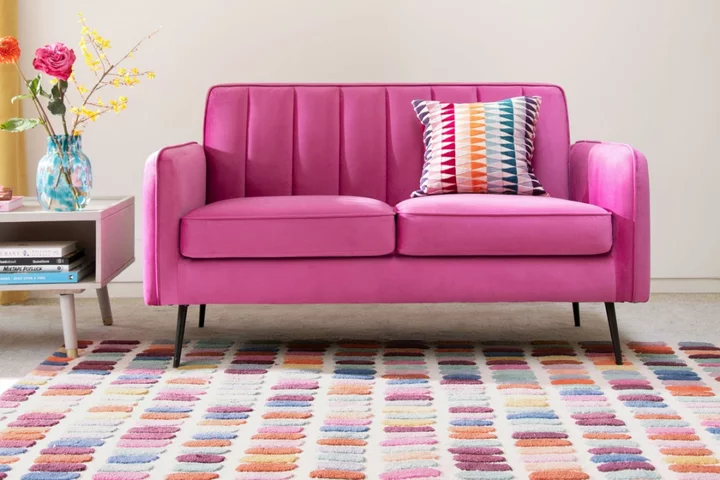
11 ways to work the colour clash trend at home
Some say the bolder the better. Especially high summer time when the sun’s streaming in – contrasting colours can create a collage-like effect, making everything look so much lovelier. Whether its pops of pink or playful prints, here’s how to get your graphic groove on with these happy hues and cheerful furnishings… 1. Honeycomb Jug Kettle 1.7L, £36.99; Four Slot Toaster, £42.99, The Range Bring a ray of sunshine to brekkie with this buttercup yellow kettle and toaster. 2. Palmilla Dinner Plate, (Set of 4), £71.96, rest of items from a selection, Wayfair From tropical fruit salads to salsa and dips, this melamine tableware with its tropical flower print will make every meal taste more exotic. 3. Colourful Marbled Bamboo Tumblers, £9 each, Rockett St George With their abstract swirls and pretty hues, these tasty tumblers signal sundowners. 4. Pablo Coasters, Set of 4, £7.95; Pablo Placemats, Set of 4, £25, Graham & Green These stylish seagrass placemats and coasters channel a Mediterranean vibe – we love their artisanal feel. 5. Lucy Tiffney at Next Ceramic Jug, £30, Next Pretty as a picture, this arty jug can double as a vase – and makes a beautiful statement with or without a fresh bouquet. 6. Gems Champagne/Cocktail Glass, £50, Set of 4; Tumbler, £45, Set of 4, LSA International If you’re looking to drink some summer bubbles, these minty green coupes have champagne cocktail written all over them. 7. Bombay Duck Colourful Carnival Pouffe, £150, Joe Browns A fabulous fusion of function and form, a pouffe can double up as a tabletop, footstool and accent piece to style up a curated corner. This one’s sure to please with its floral fiesta. 8. Sketch Rug in Confetti, from £95; Cut Velvet Cushion, £22, rest of items from a selection, Next This tufted wool rug has timeless appeal. Versatile enough to style up Scandi schemes, it’s also right at home with boho luxe interiors. 9. Sheridan Maplewood Quilt Cover Set in Pea, King, £69.50 (was £139), Sheridan Big blooms are all the rage and this lush, emerald green quilt cover evokes thoughts of a tropical island escape. 10. Negroni Framed Wall Art, £49.50, Oliver Bonas Sometimes even the simplest of recipes can make a showpiece. 11. John Lewis + Matthew Williamson Sunshine Beach Towel, Mustard and Blue, £20 each, John Lewis When you want to bathe in colour, these designer beach towels with their punchy pattern are right on point.
2023-06-29 16:59
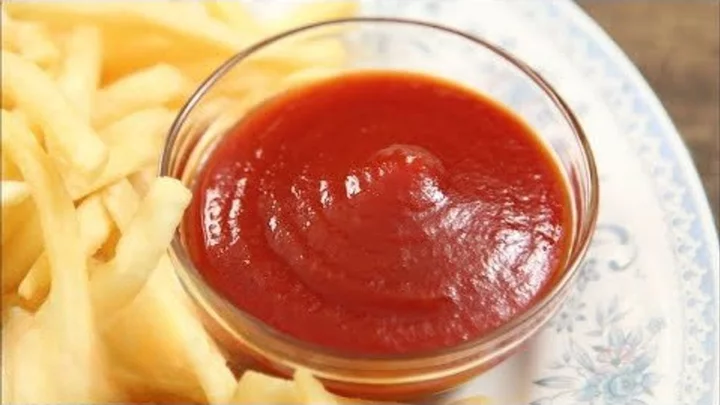
Heinz finally confirm if Tomato Ketchup should stay in a fridge
It's a staple on most people's dinner tables, though there has always been some contention over whether Heinz ketchup belongs in the fridge or the cupboard. Some people prefer the fresh coolness of ketchup from the fridge, while others favour ketchup that is room temperature and closer to the hot food they are consuming. Well, now the food processing company has weighed in to confirm where exactly you should be storing your sauce. Sign up to our free Indy100 weekly newsletter But before Heinz had its say, it asked for people's opinions via a Twitter poll and out of the 6,772 people who voted (this number is accurate at the time of writing), there are mixed responses. Results showed 57.5 per cent of people who voted think the sauce should be stored in the fridge compared to 42.5 per cent who believe the cupboard is the correct way to keep your ketchup. In another tweet, HeinzUK gave their ultimate choice, it wrote: "FYI: Ketchup. goes. in. the. fridge!!!" according to the ketchup makers. If you check the label on the ketchup bottles, it does say that the sauce should be stored in the fridge once opened and needs to be consumed within eight weeks after this. Back in 2017, the Heinz US Twitter account further explained: "Because of its natural acidity, Heinz® Ketchup is shelf-stable, but refrigerate after opening to maintain product quality." This official stance from the company has only sparked further debate on the matter. One person said: "Cupboard as I hate cold ketchup on warm food. Do fridge dwellers eat cold ketchup? Or bring it out hours before a meal?" "So why is it on the shelves in supermarkets & shops then?" another person asked. Someone else added: "People keep it out of the fridge? *gasp*" "Who tf out here keeping opened ketchup out of the fridge," a fourth person commented. Well, there you have it - though it looks like some people are loyal to team cupboard despite Heinz having its say. Have your say in our news democracy. Click the upvote icon at the top of the page to help raise this article through the indy100 rankings.
2023-06-29 16:46
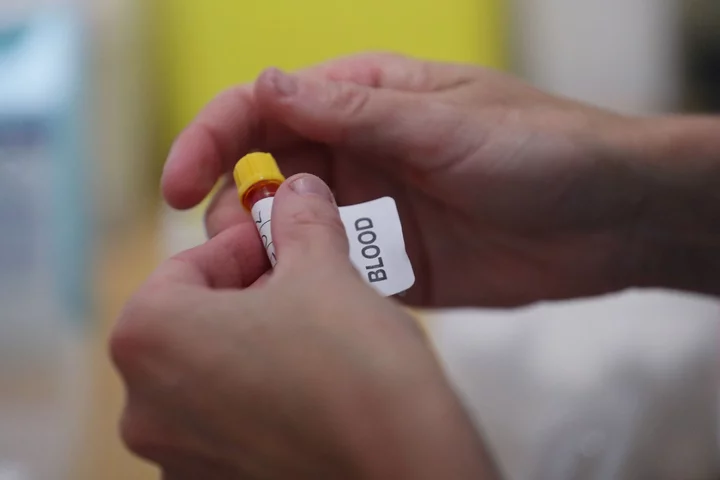
Heart disease digital check-ups for over 40s being rolled out
People over 40 in England will be sent a blood test to carry out at home in a bid to reduce heart disease and obesity. Digital NHS health checks, which will also include an online health questionnaire, will be launched next spring for people aged 40 to 74. Around 15 million people will be eligible, with around one million online checks expected to be carried out over the next four years. Health and Social Care Secretary Steve Barclay said: “Thousands of heart attacks and strokes could be prevented every year through simple health checks, which could save lives and ease pressure on the NHS. “This new digital check-up will mean people can do simple tests and get tailored advice from homes while reducing pressure on GP services.” The home blood test will check cholesterol levels with patients asked to take a blood pressure test at a pharmacy, alongside the online assessment covering details such as weight, height, diet, alcohol intake and exercise levels. Results will be made available online with help available to anyone showing early signs of issues such as diabetes or heart disease, as well as referrals to weight-loss clinics or medication. The online questionnaire will be available via phone, tablet or computer and the Government believes each check will save 20 minutes of NHS time. This could play an important role in helping people live healthier for longer and saving lives in the coming years, while reducing pressure on the NHS Professor Sir Nilesh Silemani Cardiovascular disease is the second biggest killer in England, affecting around 6.4 million people. The Government says the new digital check will help to identify 200,000 people who could benefit from the use of statins, 30,000 cases of hypertension and prevent around 400 heart attacks and strokes over the first four years. Professor Sir Nilesh Samani, medical director at the British Heart Foundation, said: “This initiative will help to reach more people and encourage them to get their blood pressure and cholesterol levels checked so that, where necessary, healthcare professionals can work with them to manage their condition. “This could play an important role in helping people live healthier for longer and saving lives in the coming years, while reducing pressure on the NHS.” Existing NHS health checks for people in the same age group take place face-to-face with a GP and concerns have been expressed that elderly people are not left behind if they struggle with technology. David Baines, vice chair of the Local Government Association, told The Times: “Making more digital health checks available is a useful tool to detect certain illnesses but it should be treated as an addition to, not a replacement for, a physical health check.”
2023-06-29 16:15

French Family Vineyards Imperiled by Historic Inheritance Taxes
As a little girl helping her parents and grandparents in the rolling vineyards of northeast France, Sophie Moussié
2023-06-29 15:21

What is colour analysis and why is TikTok obsessed with it?
The latest fashion trend to go viral online doesn’t involve a hot new denim style or designer handbag – it’s about overhauling your entire wardrobe with the help of colour analysis. Professional stylists and amateur enthusiasts alike have been sharing videos of fashionistas swathed in swatches of fabric as they endeavour to discover the palette of colours that suits them best. Also known as ‘finding your colours’, the topic is exploding on social media, with millions of video views on TikTok and 100k posts under #colouranalysis on Instagram. “TikTok users love educational content and transformation stories,” says Cliff Bashforth, managing director of Colour Me Beautiful, which provides personal colour consultations. “Colour analysis provides a captivating narrative, and the system can be proven by displaying ‘before and after’ makeovers, good and bad colours on an individual and colour combinations.” While trends like this year’s ubiquitous Barbie pink will keep popping up from time to time, consumers are increasingly rejecting the idea of ‘must-have’ pieces and adopting a more personalised approach. “With the general conscience turning away from fast fashion, colour analysis is a good way to ensure you’re buying something that will suit you perfectly and last a lifetime,” says Megan Watkins, head stylist at SilkFred. What are the benefits of colour analysis? “For many people, finding their most flattering shades of clothing (and make-up) is a life-changing experience,” says Bashforth. “Wearing your best shades of clothing enhances your natural colouring, brings out your individuality, boosts confidence, and ensures you always look your best, effortlessly expressing your personal style.” As well as guiding how you buy and style clothes, colour analysis can suggest flattering make-up and hair shades. Watkins says: “Finding the right colour palette for you will elevate your entire aesthetic and can even help with making your skin look brighter and minimise dark circles.” What happens at a colour analysis appointment? “It is a common misconception that ‘finding your colours’ is down to your hair colour or eye colour – it’s all about your skin,” says Watkins. “Your skin undertone stays the same no matter your age or how long you’ve been in or out of the sun, so assuming the colour analysis is done correctly, your colour palette will stay the same for the rest of your life.” At a professional colour analysis session, which can last up to two hours, a stylist will look at how different groups of shades look against your face. “Larger coloured swatches – known as ‘drapes’ in the trade – are used to test for the undertone, depth and clarity of the individual’s colouring,” Bashforth explains. “Some companies also use the seasonal method and categorise people into spring, summer, autumn, or winter. “At Colour Me Beautiful we start by explaining our 24-palette system so the client fully understands why he or she falls into a certain colouring type.” The stylist will talk through colour combinations, outfit ideas and make-up suggestions, and you’ll be given a fabric swatch to use as a guide for shopping. “No longer is an individual told ‘what colours to wear’,” Bashforth adds. “Instead a flexible approach has been adopted which means a client is shown ‘how to wear colour’ – it’s more about the shades of a hue, rather than the hue itself.” Can you do it yourself? While a thorough consultation with a specialist is the best way to find your perfect palette, there are some principles you can borrow to try some DIY colour analysis. “Gather up a variety of tops, knitwear etc. in warmer and cooler hues,” says Bashforth, starting with no make-up and wearing a top in a basic neutral shade. “In daylight, stand in front of a mirror and hold each garment up to your face, observing whether your complexion is enhanced and looks fresher, or your skin appears dull or pale.” You could also use the ‘vein test’ to see where you fall on the warm/cool divide. “All you need to do is check your wrist and see if your veins appear as a more green shade or if they appear to be a blue/purple hue,” says Watkins. “If you’re on the green side, this is classed as a warm tone, if you’re veering towards blue or purple then you’re on the cooler side of things.” She adds: “If you’re looking for a colour that suits just about everyone, primary red is a good bet as it partners well with every other colour on the colour wheel.” Leem Ruffled-Hem Woven Maxi Dress in Olive, £145, Selfridges Roman Blue Sleeveless Abstract Print Maxi Dress, £60 River Island Pink Ruched Sleeve Blazer, £65; Pink Wide Leg Pleat Trousers, £40 Oliver Bonas Gold & Yellow Striped Midi Dress, £79.50 Read More Charity boss speaks out over ‘traumatic’ encounter with royal aide Ukraine war’s heaviest fight rages in east - follow live Dementia diagnosis could be sped up thanks to AI Reading for pleasure in childhood boosts brain health in teenage years – study Stan Wawrinka on setbacks, preparing for Wimbledon and friendship with Roger Federer
2023-06-29 14:52
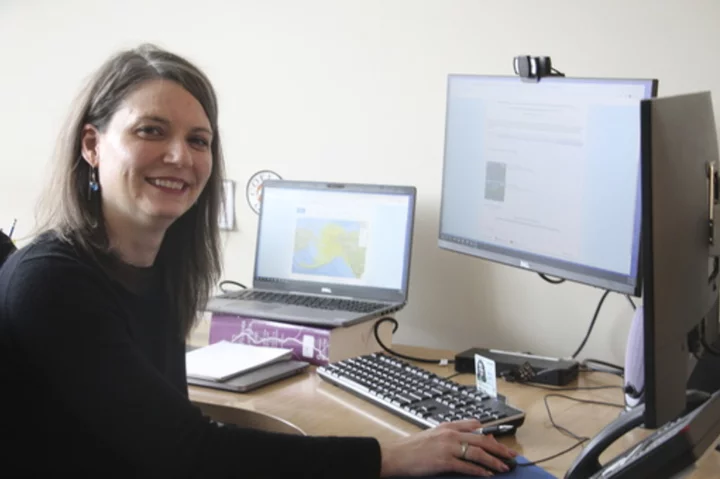
How's the weather up there? It'll be harder for Alaska to tell as longtime program goes off air
The “Alaska Weather” program has been must-see TV for 47 years in a state where extreme weather dictates everyday life
2023-06-29 14:51
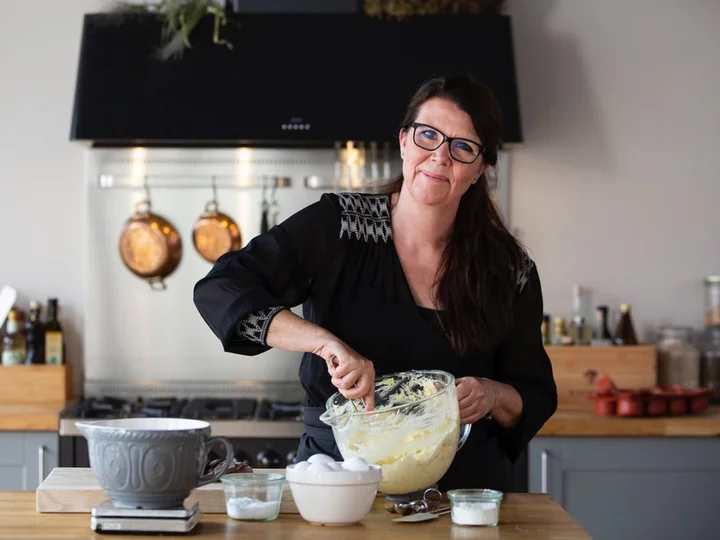
What the hell is Scandinavian food?
Danish pastries are world-famous, but what do you know about the rest of Scandinavian cuisine? With a food philosophy that centres around seasonal produce, perhaps the Scandi approach to cooking is the way forward when considering the environment and the cost-of-living crisis. “It’s very seasonal, lots of vegetables and very clean flavours,” Copenhagen-based chef and food writer Trine Hahnemann says of Danish cuisine. “So salt, pepper, nutmeg; salt, pepper, lemon; salt, pepper, vinegar – it’s not bland at all, we use spices, but we use them one at a time.” Hahnemann, 58, says this emphasis on seasonality helps save money. “It becomes too expensive to buy vegetables that are out of season, that are shipped or whatever,” she explains – but she’s all to aware that the Danish food scene is a bit of a paradox. She mentions produce “that have become everyday things, which people eat every day – like cucumbers, tomatoes and bananas. You can’t convince people there’s also a season for bananas – it’s year round, all the time. They’re the biggest fruit in Denmark”. This doesn’t stop Hahnemann advocating for eating the seasons – which in Denmark means you might be limited to root vegetables and potatoes in the winter. This isn’t necessarily a bad thing, particularly as we’re now coming into summer and there’s a glut of fruit and vegetables available. Summer cabbage, radish, fennel, tomatoes, cucumbers, courgettes, strawberries, tomatoes – they’re all in her shopping basket during this time of year. Hahnemann is a salad fan, and she’s devoted a whole section of her new cookbook, Simply Scandinavian, to them. The chef argues people “don’t take [salads] seriously enough” – and opening a bag from the supermarket won’t quite cut it. “Buy a few vegetables, bake them nicely in the oven with either lemon juice and a little bit of a spice of some kind – it could be garam masala, it could be garlic – then always have a nice dressing. Spend some money on some good oils or good vinegars, because that’s where the flavours are. “Then think about texture… Texture means a lot when we eat.” The moral of the story? “Salads are amazing, because there are no rules – anything can become a salad,” she says. Hahnemann learned traditional Scandinavian cooking from her grandmother, saying: “My favourite dish when I was little that my grandmother would cook for me was meatballs with the cucumber salad.” Her grandma ever explicitly taught her how to make this dish – Hahnemann was instructed to help out, and eventually learned classic Danish recipes through osmosis. “It was much later in my 20s I realised what an amazing gift she’d given me without ever asking if I wanted to be involved – because I was involved, but I was never asked to be part of the cooking. I just saw it all tasted it,” Hahnemann says. Not that feeding Hahnemann was much of a chore: “When I was a child I loved everything. The only thing I didn’t like was a well-done omelette, that was the only thing I couldn’t eat when I was little.” Hahnemann’s grandmother also taught her how to bake, drawing upon the traditional recipes Denmark is famous for. As a child, she practised baking while living on a commune with her parents in the Sixties and Seventies. “There was this idea that children, their creativity should be nurtured, you shouldn’t put limits on things. So I baked all these horrible cakes and the grown-ups would eat them and say, ‘Oh, it’s wonderful Trine’ – and it was nothing like that,” Hahnemann remembers with a laugh. It was only when someone in the commune started giving her tips on beating the butter and sugar before adding the rest of the ingredients that “all of a sudden this world opened up to me about baking”. Hahnemann still uses baking as a tool when she’s “really stressed out”, and has a bakery in Copenhagen putting the spotlight on traditional Scandinavian bakes like cardamom buns and rye bread. She says baking is “the most important thing” about Scandinavian cuisine. “Because of the rye bread, and the whole lunch concept of open sandwiches on the rye bread. The whole breakfast is about bread, then you have all the celebratory baked goods – that you can say we now eat on a more regular basis.” While Hahnemann accepts some “traditions are disappearing, because everybody’s working so much”, she’s keen to keep the spotlight on traditional buns, breads and baking. When she recently taught a baking class, she was “so happy” to have a group of male friends in their 20s sign up, saying: “I think it’s important to keep it alive.” ‘Simply Scandinavian’ by Trine Hahnemann (Quadrille, £27).
2023-06-29 13:53
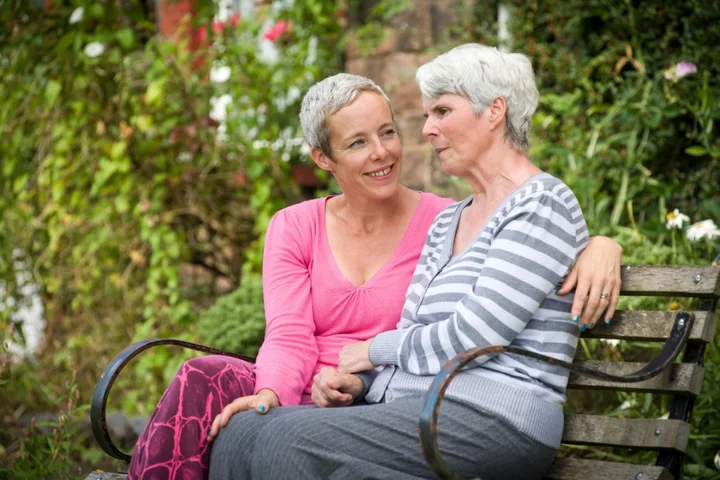
Dementia diagnosis could be sped up thanks to AI
A new artificial intelligence (AI) tool may be able to look for early signs of dementia and Alzheimer’s disease, speeding up diagnosis. The technology, which could help doctors assess the early signs of the condition more efficiently, has been developed by researchers at the University of Sheffield. Known as CognoSpeak, the system uses a virtual character displayed on a screen to engage a patient in a conversation. It asks questions to test memory, inspired by those used in outpatient consultations and conducts cognitive tests, such as picture descriptions and verbal fluency tests. This tool could help patients start treatments sooner, reduce waiting times and give people certainty earlier Dr Dan Blackburn, University of Sheffield After that, the tool uses AI and speech technology to analyse language and speech patterns to look for signs of dementia, Alzheimer’s disease and other memory disorders. Researchers behind the technology suggest it could play a key role in reducing the burden on dementia assessment services, once further testing in GP and memory clinics across the UK is complete. The National Audit of Memory Assessment Services in England and Wales, conducted between January and August 2021 by the Royal College of Psychiatrists and supported by Alzheimer’s Society, found that the average waiting time from referral to dementia diagnosis had increased to 17.7 weeks. This was up from 13 weeks in 2019, with waiting times across services nationwide ranging between zero and 104 weeks (two years), compared to three and 34 in 2019. There are currently around 900,000 people in the UK living with dementia, and this is projected to almost double by 2040, according to the Alzheimer’s Society. Dr Dan Blackburn, from the University of Sheffield’s Department of Neuroscience, said: “Waiting for a possible diagnosis of dementia can be a very anxious time for patients and their families. “This tool could help patients start treatments sooner, reduce waiting times and give people certainty earlier. “The CognoSpeak system could transform how dementia and other memory disorders are diagnosed by speeding up assessments. “This would also free up clinicians’ valuable time and mean that those who need specialist care get access to it as quickly as possible.” Also an Honorary Consultant Neurologist at Sheffield Teaching Hospitals NHS Foundation Trust and researcher at NIHR Sheffield BRC, he added: “There is a real clinical need for this kind of technology. “There are long waiting lists for memory clinics across the UK, but there are also inequalities in accessing the memory clinics service. “The CognoSpeak tool can reduce these inequalities and help make the service more efficient.” The CognoSpeak system could transform how dementia and other memory disorders are diagnosed by speeding up assessments Dr Dan Blackburn Professor Heidi Christensen, from the University of Sheffield’s Department of Computer Science, added: “The way a person speaks can tell us a great deal about their cognitive health and emotional wellbeing, and give us a very early indication of any signs of cognitive decline that may not otherwise have been detected. “The system we’ve developed here at Sheffield uses speech technology to automatically extract these signs and the automation means we can provide a consistent, accurate and fast assessment for everyone. “CognoSpeak is advanced, high tech and based on world-leading research in this field. “We have the biggest collection of data for this type of assessment anywhere in the world, which we’re using to advance the technology and improve its accuracy.” The system is being designed in a way that means once it is fully rolled out, a GP could refer a person with memory complaints to use the technology. CognoSpeak would send the test results back to the GP and then they would decide whether to refer the patient to a memory clinic for further assessment. The programme can be accessed through a web browser – meaning patients are able to take the test in the comfort of their home, rather than having to wait for a hospital appointment to take a pen-and-paper-based assessment. Researchers say early trials have shown the technology is as accurate at predicting Alzheimer’s as the current written tests used to assess or screen for cognitive, memory or thinking impairments. According to the team, previous research has demonstrated accuracies of 90% for distinguishing people with Alzheimer’s from people that are cognitively healthy. Developed by Dr Blackburn and Prof Christensen, the system is still in the research phase, but a £1.4 million National Institute for Health and Care Research (NIHR) grant will allow it to be trialled more widely. The researchers are recruiting 700 participants from memory clinics across the UK to help develop the system further. The tool has been developed in collaboration with Therapy Box – a company specialising in speech and language technology – and the National Institute for Health and Care Research (NIHR) Devices for Dignity MedTech Cooperative (D4D). Read More Charity boss speaks out over ‘traumatic’ encounter with royal aide Ukraine war’s heaviest fight rages in east - follow live Reading for pleasure in childhood boosts brain health in teenage years – study Stan Wawrinka on setbacks, preparing for Wimbledon and friendship with Roger Federer Hacks for saving money on school uniforms
2023-06-29 13:51
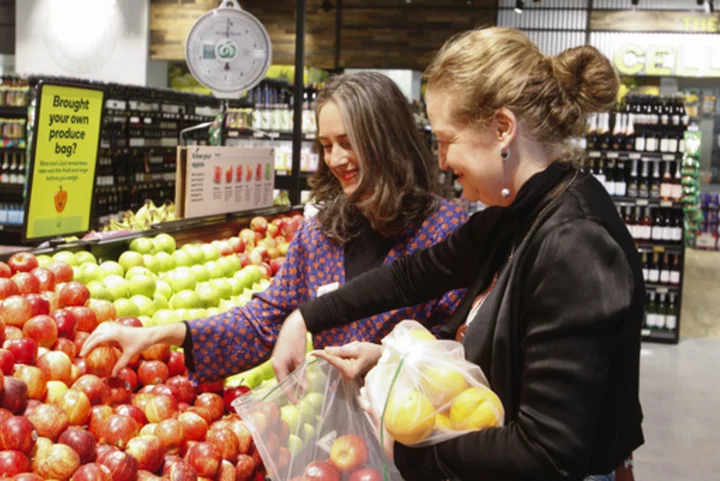
New Zealand says it's the first to ban thin plastic bags from supermarkets
New Zealand’s government says that from Saturday, it will be the first nation in the world to ban the thin plastic bags that supermarket customers use to collect their fruit and vegetables
2023-06-29 13:24

Chance to challenge 2020 census numbers is ending, with funding for states and cities at stake
The window for local, state and tribal governments to challenge their 2020 census figures closes after Friday, and with it the opportunity to correct mistakes in population totals that could cost them millions of dollars in federal funding
2023-06-29 13:21
